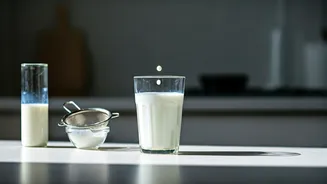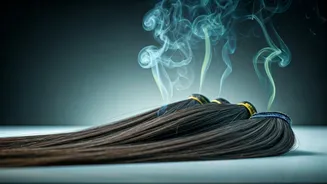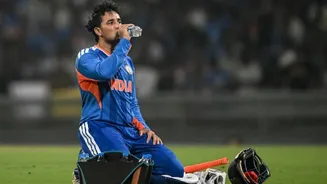Stay light, stay bright; because devotion shouldn’t drain you.
Navratri is a festival of devotion, dance, and discipline. For many, it’s also a time of cleansing
through fasting. But while some devotees radiate energy during these nine days, others struggle with constant tiredness, headaches, and lack of concentration.
If you’ve been wondering, “Why do I feel so drained during fasting?” You’re not alone. The answer lies not in fasting itself but in how you fast. Let’s decode the science behind fasting fatigue and, more importantly, how you can fix it without breaking tradition.
Too Many Carbs, Too Little Balance
Sabudana vadas, potato fries, and deep-fried kuttu puris are tempting, but they’re carb-heavy. While they give you an instant energy rush, the crash soon follows — leaving you sluggish.

Fix It: Pair your carbs with protein and fibre. For example, eat sabudana khichdi with peanuts, curd, or paneer to balance your meal.
Skipping Hydration = Skipping Energy
During fasting, water intake often takes a back seat. Dehydration causes fatigue, dizziness, and even muscle cramps. Add to this the restriction of regular salt (which maintains electrolyte balance), and exhaustion is inevitable.
Fix It: Sip water regularly. Include coconut water, lemon water with sendha namak, or buttermilk to restore electrolytes naturally.
The Protein Gap
Most vrat diets are high in starch but low in protein, which is crucial for energy and satiety. Lack of protein leads to weakness, sugar cravings, and mood swings.

Fix It: Add paneer, yoghurt, roasted makhana, nuts, milk, and amaranth to your fasting plate. These protein-rich foods prevent energy dips.
Irregular Meal Timings
Waiting all day for one big vrat thali puts unnecessary stress on your metabolism. Large gaps between meals drop blood sugar levels, leaving you dizzy and tired.
Fix It: Eat small, frequent meals every 3–4 hours. Fruits in the morning, makhana as a snack, a light kuttu roti with sabzi for lunch, and sama rice khichdi for dinner work wonders.
Too Much Fried, Too Little Fresh
Deep-fried snacks feel festive, but oil slows digestion and makes you feel heavy. Combine that with the lack of fresh fruits and veggies, and your body misses out on essential vitamins and minerals.

Fix It: Balance your plate with boiled sweet potatoes, cucumber, pomegranate, papaya, or lauki sabzi. These light foods energize without weighing you down.
Sleep Gets Ignored
Between late-night garba sessions, preparations, and fasting fatigue, sleep often suffers. But inadequate rest lowers immunity and worsens exhaustion.
Fix It: Prioritize at least 7–8 hours of sleep. A quick 20-minute afternoon nap can also recharge your energy.
Mind Over Matter: Stress Plays a Role
Stress about “what to eat” or whether you’ll survive the fast can itself drain energy. Mental exhaustion often shows up as physical tiredness.

Fix It: Practice deep breathing, light yoga, or meditation during Navratri. A calm mind makes fasting easier on the body.
Navratri fasting is not meant to leave you exhausted, it’s meant to detoxify your body and mind while deepening your devotion. If you’re feeling drained, it’s a signal from your body to tweak your vrat routine. With balanced meals, hydration, adequate rest, and mindful eating, you can stay energetic throughout the nine days.
This Navratri, let your fasting glow show in your energy, not in your yawns.













